In 2005, Congress instituted a new renewable-fuel standard. In response, refiners removed methyl tertiary butyl ether (MTBE) from gas and started blending fuel with ethanol. Ethanol helps reduce petroleum use and greenhouse-gas emissions. Derived from corn, it supports U.S. agriculture and promotes energy independence. Ethanol, however, can be bad for small engines.
These problems center on the two following issues:
1) Ethanol can dissolve plastic and create deposits
Ethanol is an excellent solvent and drying agent that dissolves old gum and varnish deposits from the gas tank and fuel lines.
However, ethanol can also dissolve plastic and create deposits, like those seen in the carburetor bowl shown here.
Honda states that the dissolved material can clog filters or pass through and leave deposits on fuel injectors, fuel pumps, fuel-pressure regulators, carburetor jets, intake tracts, valves and valve guides.
The result can be a lawnmower, snowblower, chainsaw or other equipment that won’t start or runs poorly.
Small-engine manufacturer ECHO agrees, stating in its warranty that these deposits can lead to poor engine performance; loss of power; overheating; fuel-vapor lock; improper clutch engagement caused by increased engine idle speeds, which allows cutting attachments to turn while the unit is idling; and premature deterioration of fuel lines, gaskets, carburetors and other engine components.
2) Ethanol and water don’t mix
Small-engine manufacturers have spent considerable time studying the relationship between ethanol and water.
ECHO warns that ethanol will absorb a small amount of moisture and stay in suspension within the gasoline for a while.
However, the ethanol will only absorb up to three-quarters of an ounce of water in a gallon of gas before it reaches its saturation point. Once the ethanol has absorbed enough moisture to reach its saturation point, phase separation occurs.
Phase separation means the ethanol and absorbed water drop to the bottom of the fuel container since it is heavier than the gas and oil, leaving the gasoline and oil mix to float on top of the tank.
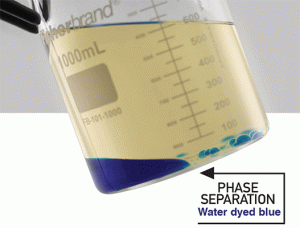
Most operators never notice water in the can when they refuel their equipment. The end result is often a carburetor ruined with rust and corrosion. These repairs can be costly and are not typically covered by warranty.
Stihl stresses that the layer of gasoline left floating on top has a lower octane level than the original ethanol-gasoline blend, which can result in unstable engine operation, power loss and major engine failures.
Ethanol’s affinity for water explains why so many ethanol-related problems surface in the marine industry.
In fact, some marina personnel say up to 65 percent of their service orders are attributable to fuel-system problems.
Combating ethanol problems
Although some fuel additives on the market claim to reverse the effects of phase separation, there’s no way to reintegrate gasoline and ethanol once they’ve separated. Instead, it’s best to prevent it.
One solution is to use non-oxygenated, ethanol-free gas in your small engines. It costs a little more, but it eliminates problems associated with ethanol.
Another solution is to treat every tank of fuel and container of gas with AMSOIL Quickshot. It helps keep water molecules dispersed in the fuel to prevent phase separation. It also cleans varnish, gums and insoluble debris while stabilizing fuel during short-term storage.
Quickshot was tested in fuel containing 10 percent ethanol. Controlled plugging of injectors showed a 70 percent flow improvement, while oxidation stability improved 44 percent over untreated fuel. It addresses ethanol-related problems and helps keep your small engines running strong.
Regardless whether you’re pro- or anti-ethanol, we can all agree on the importance of taking care of our small engines.
Updated. Originally published: July 12, 2017
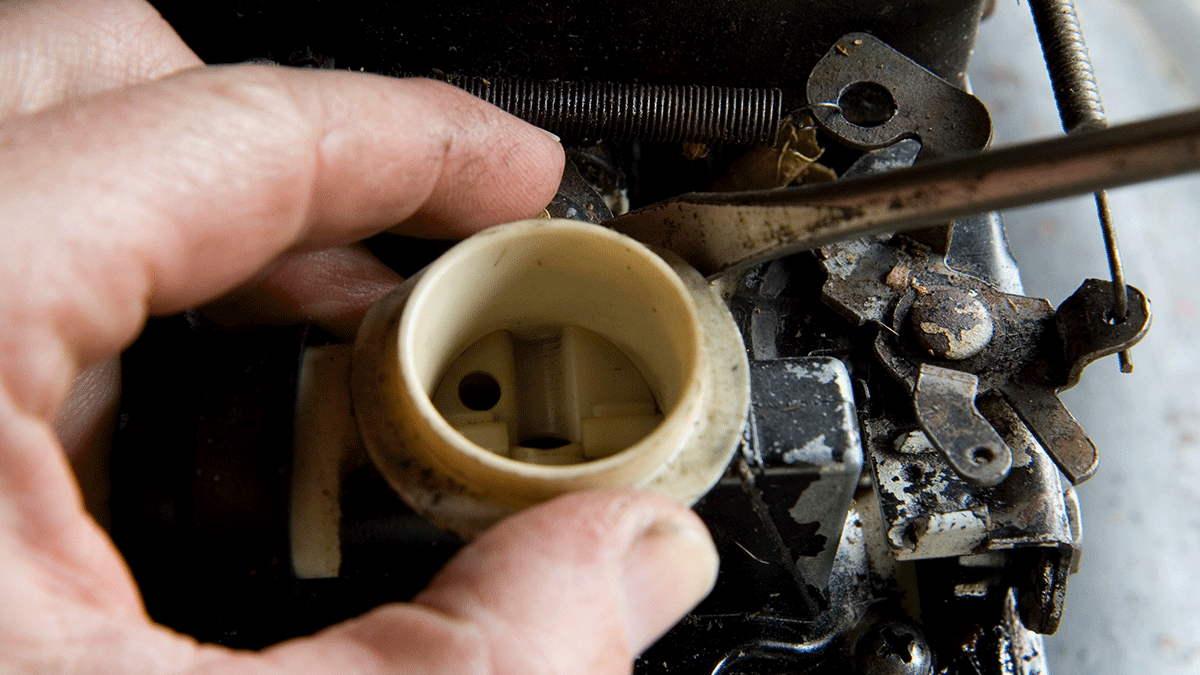
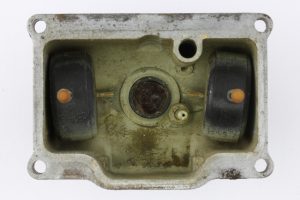
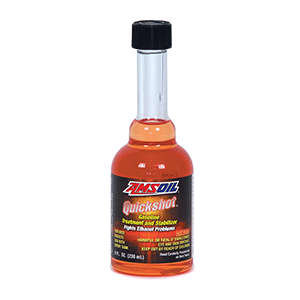


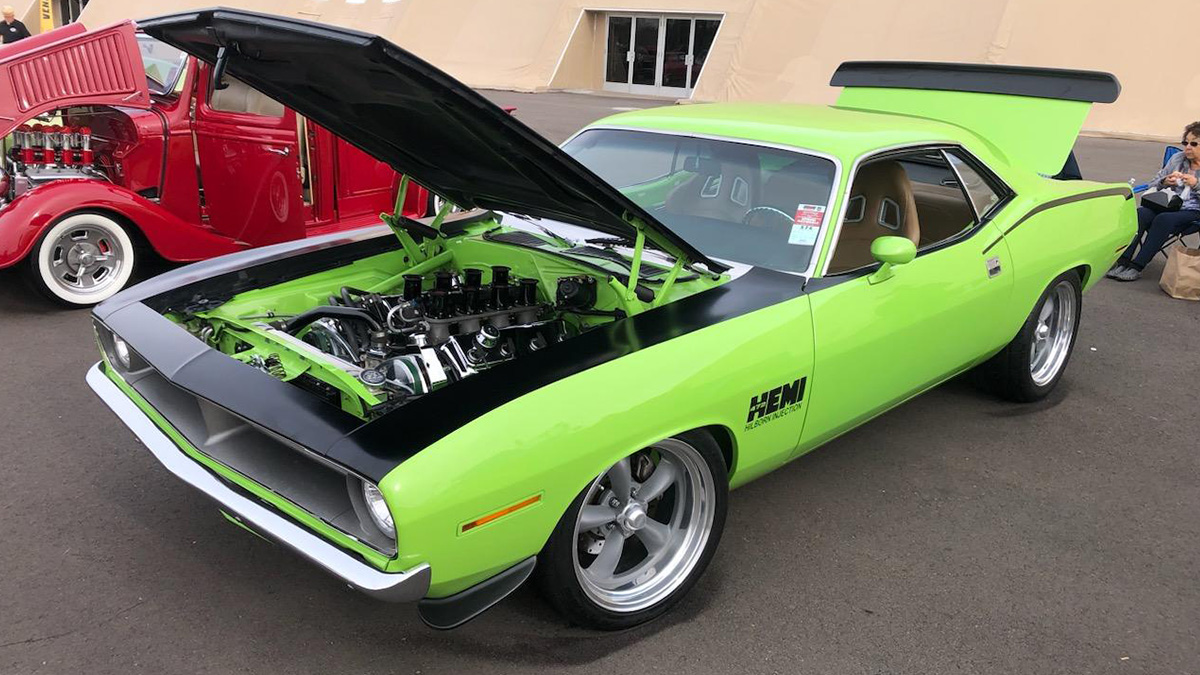
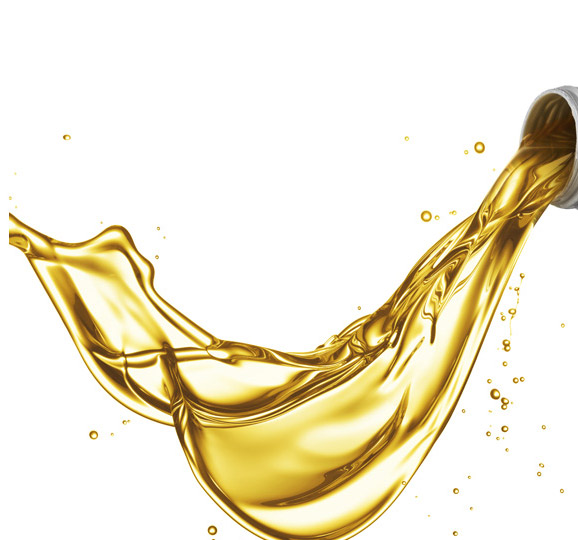
Comments
Share: